Who doesn't like pancakes? Sweet or savory, they are great as a snack, a starter, or a dessert. There are some fantastic recipes around, but the only problem comes when you get a little overenthusiastic and make too much batter to use in one go. Now, if you're wondering about how long you can keep pancake batter, you're in the right place.
Putting leftover batter in the refrigerator or freezer is easy enough to do; and you can make hot pancakes with it in an instant. You can even freeze it to use when you go camping.
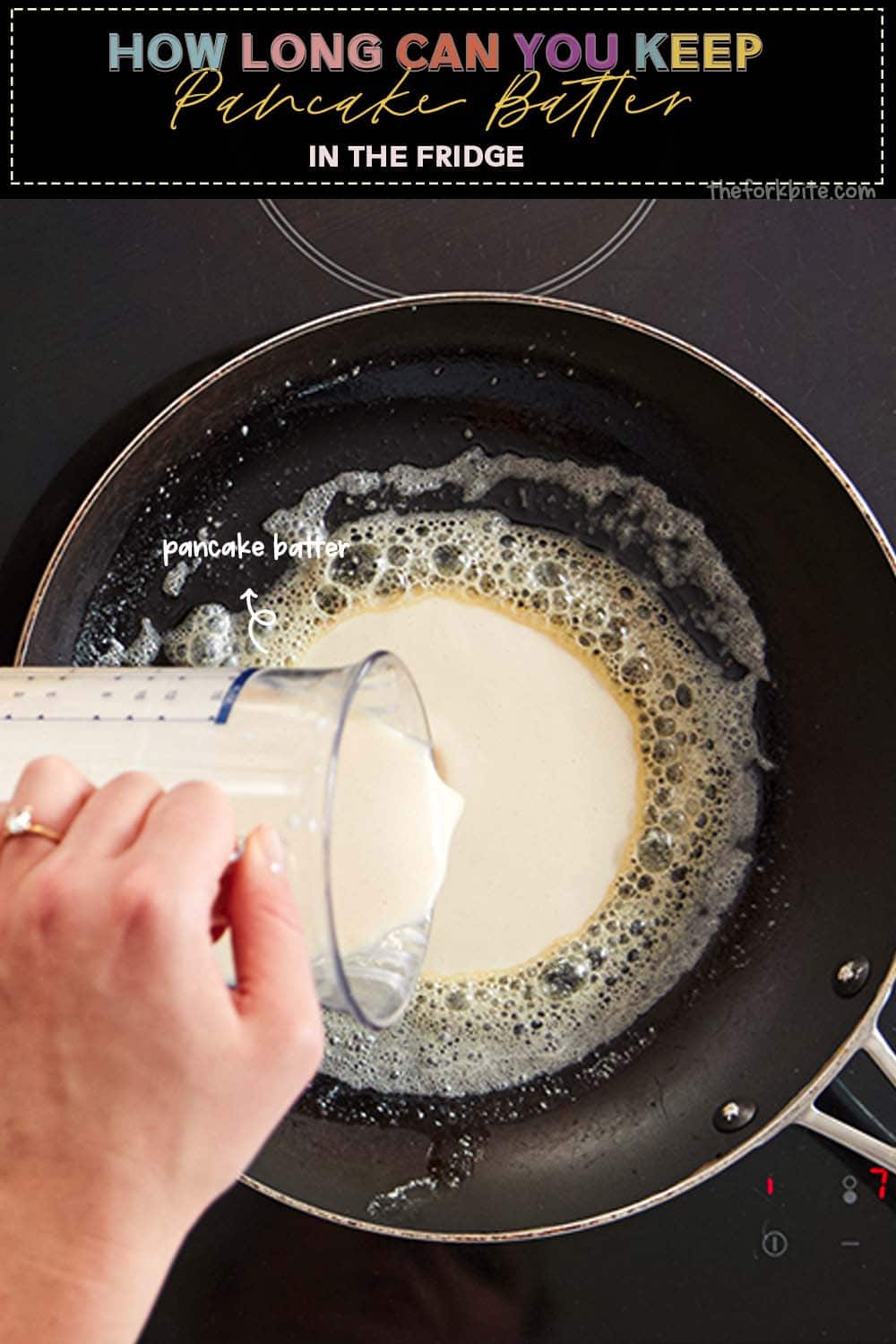
Watch the video
Extend the life of my pancake mix
Before we get underway with the main content, let us take some time out to explore why it can be useful to store leftover pancake batter.
- First of all, why throw any food away unless you have to?
- Secondly, if you find yourself in a rush and have some leftover pancake batter stored away somewhere, you're already on the road to a quick pancake fix.
If you've got a busy schedule, you may find that you don't have the time in the morning; to spend weighing out ingredients and preparing your pancake batter. But, with what I am about to tell you; you'll be able to whisk up a pancake batter mix whenever you have some spare time; While keeping it for days or even months, for when you need it.
It also means; that if you don't have a sufficiently big enough appetite to eat 12 pancakes or more in one go; you can spread your pancake feast out over a few days. You will be killing two birds with one stone. Treating your tastebuds in the coming days and minimizing any food wastage at the same time.
If you're not sure about storing your pancakes mix correctly, not only might you end up with some sad-looking pancakes. You might also make yourself ill. On the other hand, if you take heed of what I'm about to tell you; nearly every day can be pancake day. Whoopee!
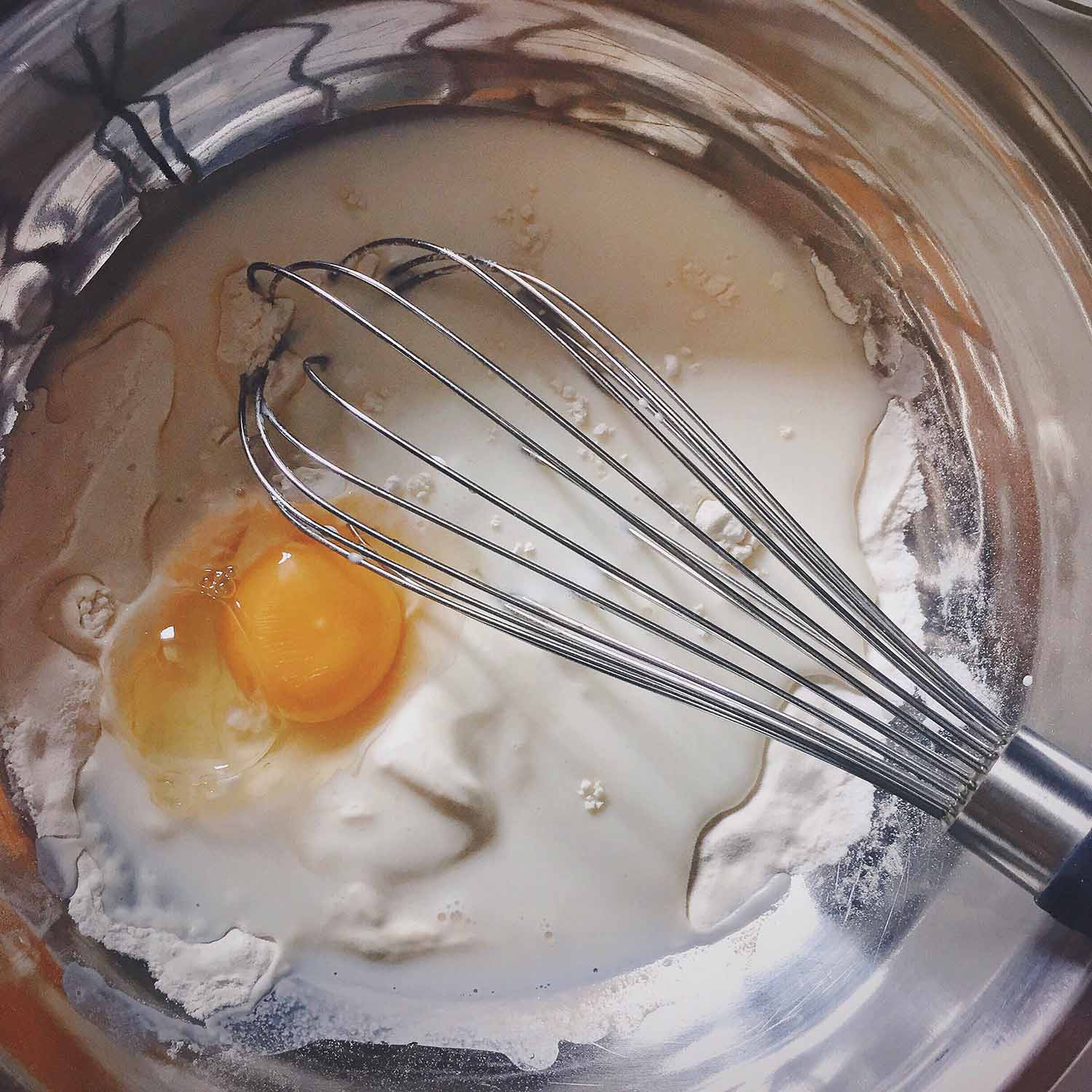
How long does pancake batter last?
Unfortunately, a fresh pancake mixture is not like other foods that don't go off. It will deteriorate and eventually go bad - quite quickly too.
How quickly that will happen isn't a straightforward question to answer. It all rests on the ingredients you use and where you might store the mixture once you've made it.
How long does the pancake batter last at room temperature?
According to the FDA, you shouldn't leave refrigerated foods outside of a fridge at room temperature for more than 2 hours.
- A pancake batter contains milk and eggs, which is why I recommend not keeping it out at room temperature for any more than a couple of hours, maximum. Any longer and you are taking a considerable risk.
- You might wonder whether it makes any difference when the pancake batter is made using dairy-free or UHT milk. You need to check the packaging of the ingredients as far as shelf stability and life are concerned.
Like ordinary milk, most other types of milk should be refrigerated as soon as they've been opened. The same advice applies to a pancake batter mix too.
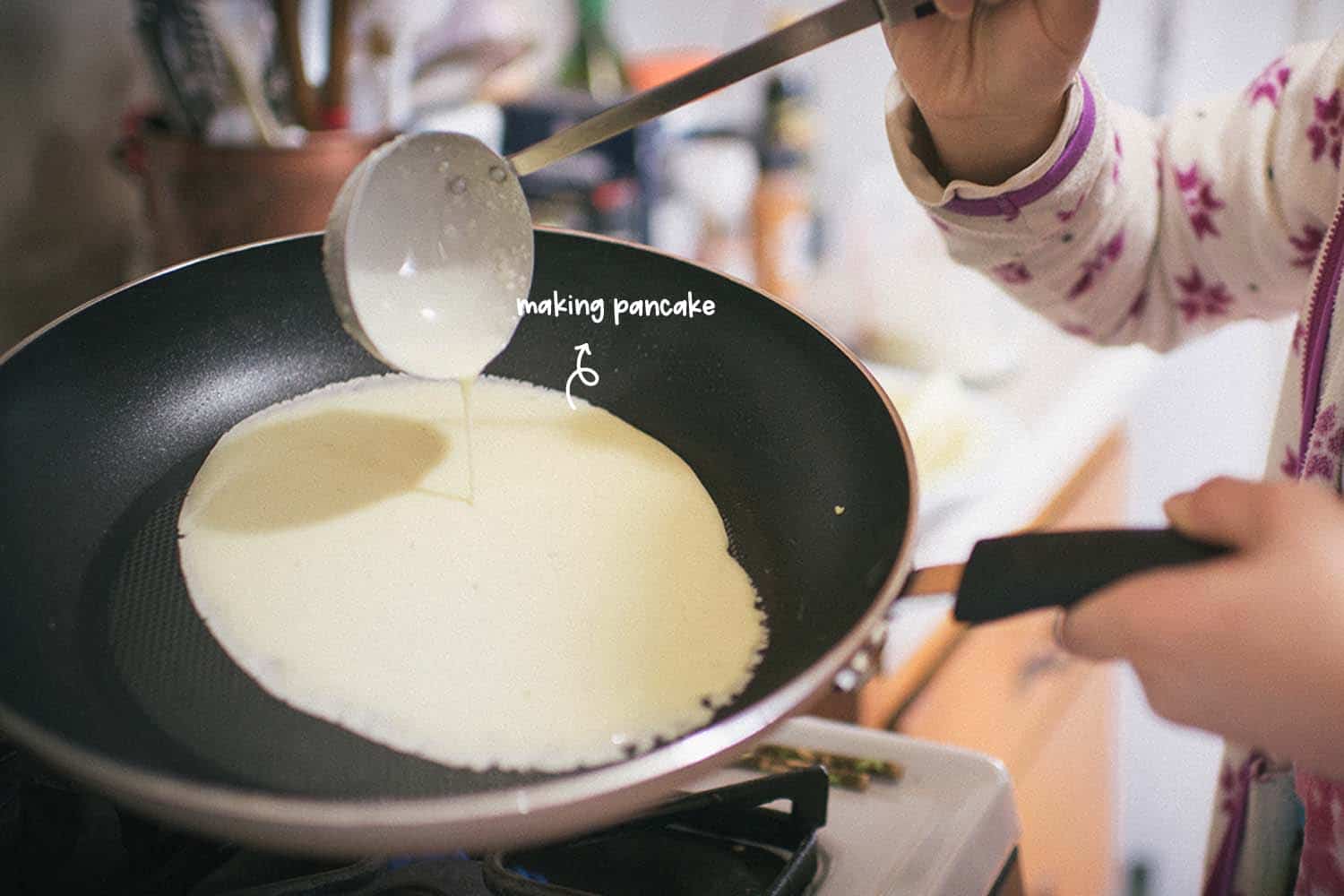
How long will the pancake batter last in the fridge?
A regular pancake batter made using flour, milk, and eggs is okay when stored for between 2 to 5 days in the fridge. It does, however, depend on the expiry dates printed on the product packaging.
Should the eggs and milk expiry date goes beyond the window, then I would recommend that you use the batter respecting the products' expiry dates.
Can you freeze pancake batter?
Indeed you can! To get the best results when freezing pancake batter, I recommend pouring it into a Ziploc bag. You need to ensure that you extract as much air as possible from the bag before you seal it.
- It's a good idea to flatten the bagged mixture because the thinner it is, the quicker it will defrost when you come to use it again.
- If you have little time to spare, the best way of defrosting your frozen pancake batter is to immerse it in a bowl of warm water. If time isn't an issue, I recommend placing the frozen mixture into your fridge to allow it to defrost overnight.
Not only are Ziploc bags good to use in terms of extracting any air out before you seal them but once your pancake batter is completely defrosted, you can cut the corner off the Ziploc bag and squeeze the mixture directly into your frying pan. No-fuss. Simple, easy, and convenient.
How to store pancake batter overnight
If you plan to store the pancake batter overnight, the key thing to do is extract as much air as possible.
For optimum results, please follow these recommendations for refrigerating your pancake batter overnight:
- Pour the pancake batter into a Tupperware container that has an airtight lid.
- Before closing the lid, place some plastic film on top of the batter's surface to give it as much protection from any air as possible.
Alternatively:
- Pour your pancake mixture into a Ziploc bag that is liquid safe.
- Extract as much air as is practical, seal, and store in your fridge.
- When it comes time to use your chilled pancake batter, cut the corner of the Ziploc bag, and squeeze the contents directly into your frying pan. It's a bit like using a piping bag. What could be easier?
One other option is to store your mixture in a pancake dispenser.
A lot of people like eating pancakes daily, and why the heck not?
If this appeals to you, it might be a good idea to make a large batch of pancake batter when you have the time and store it so that you can use it throughout the week.
- One of my favorite tricks is to store a large batch of pancake batter in something like a big, empty, old ketchup bottle after the remnants of the ketchup have been washed out.
- Any old squeezy-type bottle will do, as long as it has a good seal. It makes squeezing the pancake mixture directly into your frying pan or griddle a complete doddle. It's the perfect way of producing pancakes on demand.
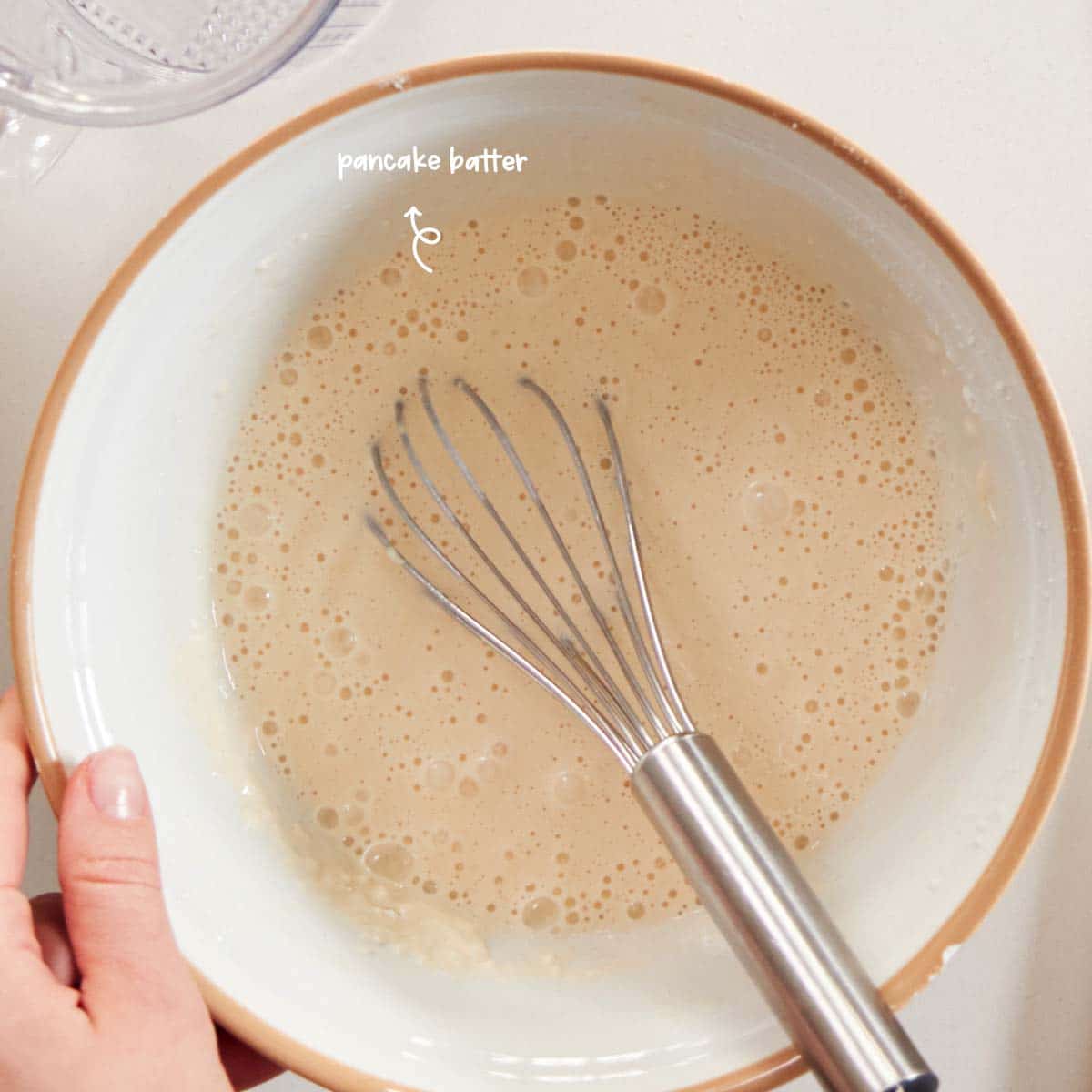
If you were storing your pancake batter for more extended periods; it's recommended to make batter with yeast rather than baking soda.
I find that the flavor and the rise of the mixture develop with time. You won't have to mess about with all that whisking when you have little time to spare. At the same time, you're in desperate need of a quick breakfast.
The one exception to using yeast is if you are going to be making crêpes or Scandinavian-type pancakes. They don't need any rise.
The last ingredient to think about is milk. When using milk, it's best not to store the batter you make with it for longer than one week at a time. Any longer and the batter, it will turn sour.
Guide in refrigerating pancake batter overnight
There are lots of different recipes for creating the ideal pancake. Each uses ingredients with unique storing characteristics. And these can end up altering the consistency of your pancake batter, so be careful.
It's all about the rise of the batter.
Suppose you adore fluffy, American-style pancakes; think about whether or not you can refrigerate your batter overnight. It's best to check the recipe to look for the ingredients we will discuss a little later.
But, regardless of which type of pancake mixture it is you will be refrigerated; you will need some good quality, food-safe, airtight jars, or a batter dispenser that has a lid.
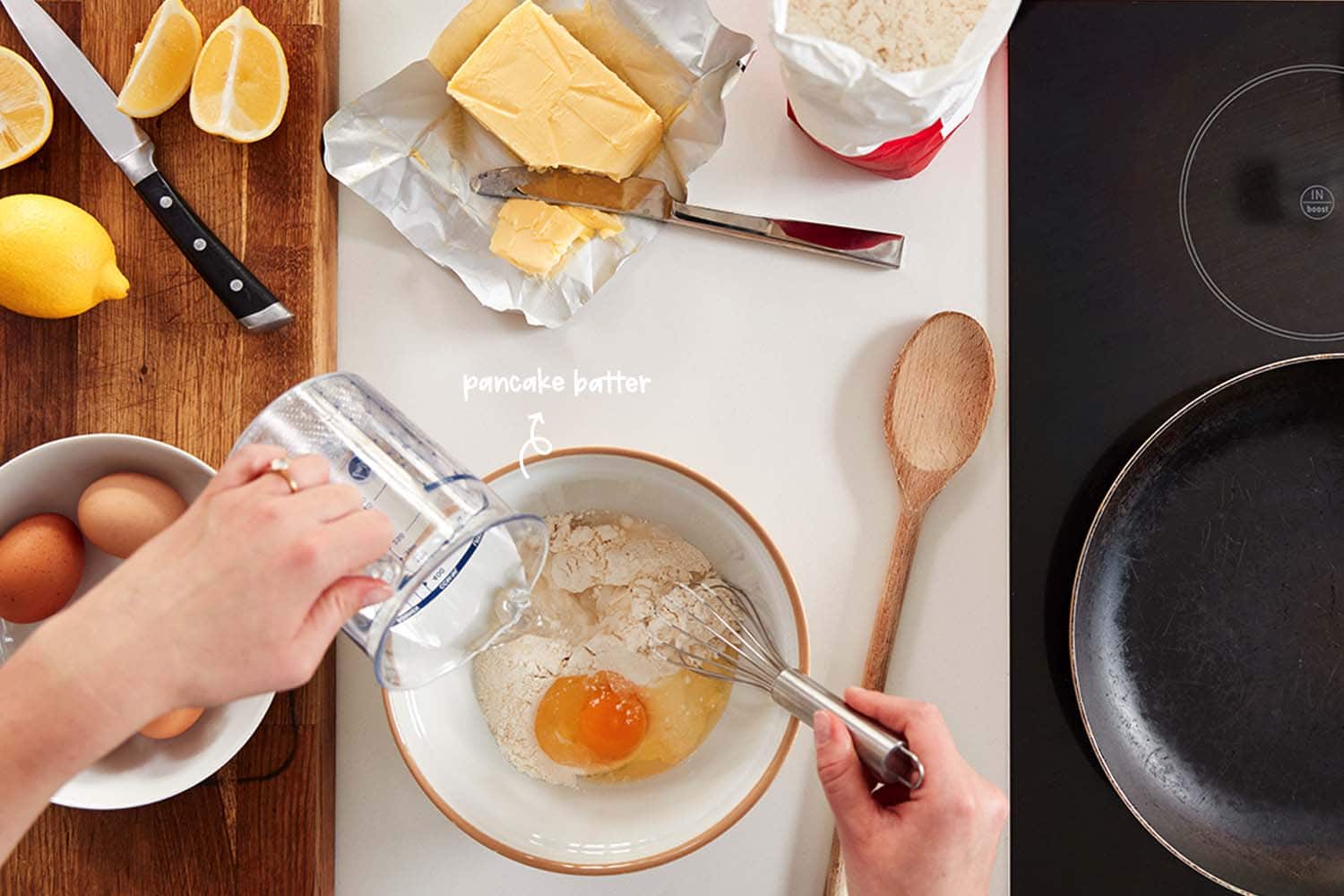
1 Batter for thin pancakes or crepes
If you aim to make thin, flat, crêpe-style pancakes in the morning; preparing your batter in advance is the ideal solution.
- When you whisk together the pancake batter's wet and dry ingredients, bubbles form that aerates the mixture. These little bubbles make the pancakes rise and puff up; but that is not what you want if you're going to be making crêpes. For these French-style pancakes, it's preferable if the bubbles burst.
- Crêpe-style pancakes are ideal for rolling up with peanut butter and jelly filling or other fillings of your choice. Serving with a scoop of whipped cream for a super dessert that can be created in no time flat.
2 Batter that contains baking soda
- Baking soda is a type of leavening agent that helps make the batter rise; so your pancakes will cook gorgeously light and fluffy.
- Regrettably, baking soda starts its work immediately after mixing into a batter. And you don't cook the batter immediately, it will fall flat.
- If the following recipe requires baking soda as its rising agent; it's not the type of recipe you should make ahead of time.
3 Batter that contains baking powder
Baking powder does, however, store well. The majority of baking powders are "double-acting,". Which means, they will get to work as soon as they come into contact with wet ingredients. At the same time will activate again when the heat is applied.
Notes:
- Pancakes made from batter containing baking powder then refrigerated will not rise as much as they would. Compare to if you were to cook them immediately after completing the batter; in other words, if the batter was at room temperature.
- If you think the first pancake looks a little sad and flat; you can always add a little baking soda to the mixture before cooking it to act as a refresher. Also, it's essential to keep within 25% to 50% of the quantity specified in the recipe.
4 Batter that contains yeast
If you will be making your pancake batter ahead of time, it's best to use yeast.
Yeast remains active, so it means that your pancakes will have that lovely fluffy volume. Even if you don't cook them until the next morning. Many people believe that allowing the yeast to rest and prove overnight improves the flavor.
It's wholly possible to make pancakes or waffles with sourdough starter weeks ahead of baking.
Whichever way you go, it's preferable to remove the pancake batter from the fridge. Around one hour before commencing cooking, to allow it time to get to room temperature.
5 Buttermilk pancake batter overnight
If your thing is buttermilk pancakes, and you are planning on making them ahead of time, you can do, but you need to be aware of the following:
- Buttermilk deflates when left to sit for too long, so making your pancake batter in advance can be somewhat challenging; however, it is still quite possible.
- As far as the dry ingredients go, they do not need to be refrigerated. The wet ingredients only can be mixed in a bowl, then put into an airtight container to store overnight. You can then add the wet and dry components and lightly whisk them together just before cooking.
- While this isn't the be-all and end-all in terms of time-saving methods, it isn't the worst either. It doesn't take that long to mix your ingredients. After all, you can be doing it in the time it takes to preheat your frying pan or griddle.
If your mind is set on mixing all of the ingredients and refrigerating overnight. All you need to do is find a recipe that calls for yeast. And all will be well with mixing the batter in advance.
6 Batter that contains egg whites
Some recipes use whipped egg whites as a leavening agent in place of baking soda or yeast.
If this type of recipe is one that appeals, the best thing to do is to make your pancake batter the night before. However, leave the whipping and folding of the egg whites until you are about to commence cooking.
It means that you will have all the convenience of pre-making and refrigerating your pancake mixture overnight. But with the gorgeous fluffiness, you desire when you cook the pancakes at breakfast time.
Interesting pancake recipes
Frequently asked questions
Many recipes suggest that you should allow your pancake batter to rest. You might wonder why that is so. The reason is that the resting allows the gluten to relax, meaning that you will end up with smoothly textured pancakes that are as fluffy as you could wish.
Okay, so happens when you don't allow your pancake batter to rest?
It's not a major problem if you don't allow your pancake batter the time to rest. The result will always be edible. The real need to rest your batter is when it has been worked too hard to beat out any lumps. What happens is that you activate the flour's gluten, which will make the pancakes a little chewier.
When done correctly, it is perfectly okay to use pre-made pancake batter, although the pancakes might not be as fluffy as they could have been when the mix was originally made. It's because the baking soda loses about 50% of its power. However, the frying pan's heat will be enough to activate the 50% left.
Indeed you can. Many people like to cook up a large batch of pancakes then freeze them for eating later on as opposed to making pancake batter in advance. To freeze pancakes after they have been cooked, you need to allow them to cool down completely and then wrap individually in plastic film.
To afford your pancakes a little extra protection, you can group all of the individually wrapped pancakes. Insert them into a Tupperware container or a freezer-safe Ziploc bag. Label the bag or container, date it, and freeze. You should eat them within three months.
People often reheat frozen pancakes in their toasters or toaster ovens. Alternatively, you can allow them to defrost on your worktop. Then, reheat them in batches in your oven, or one at a time in a frying pan.

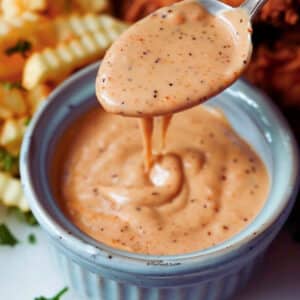
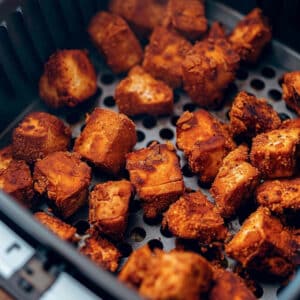
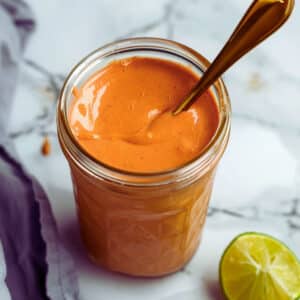
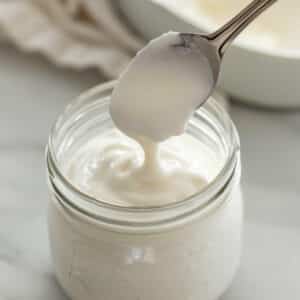
Calleigh says
hi Lorri,
I already modified it, thank you for bringing that up to my attention. It was a typo.
Calleigh
Lorri Ward says
Please clarify your instructions on "batter that contains baking soda". I think you misstated "baking powder" in the last sentence.